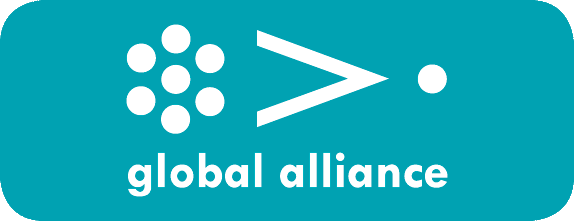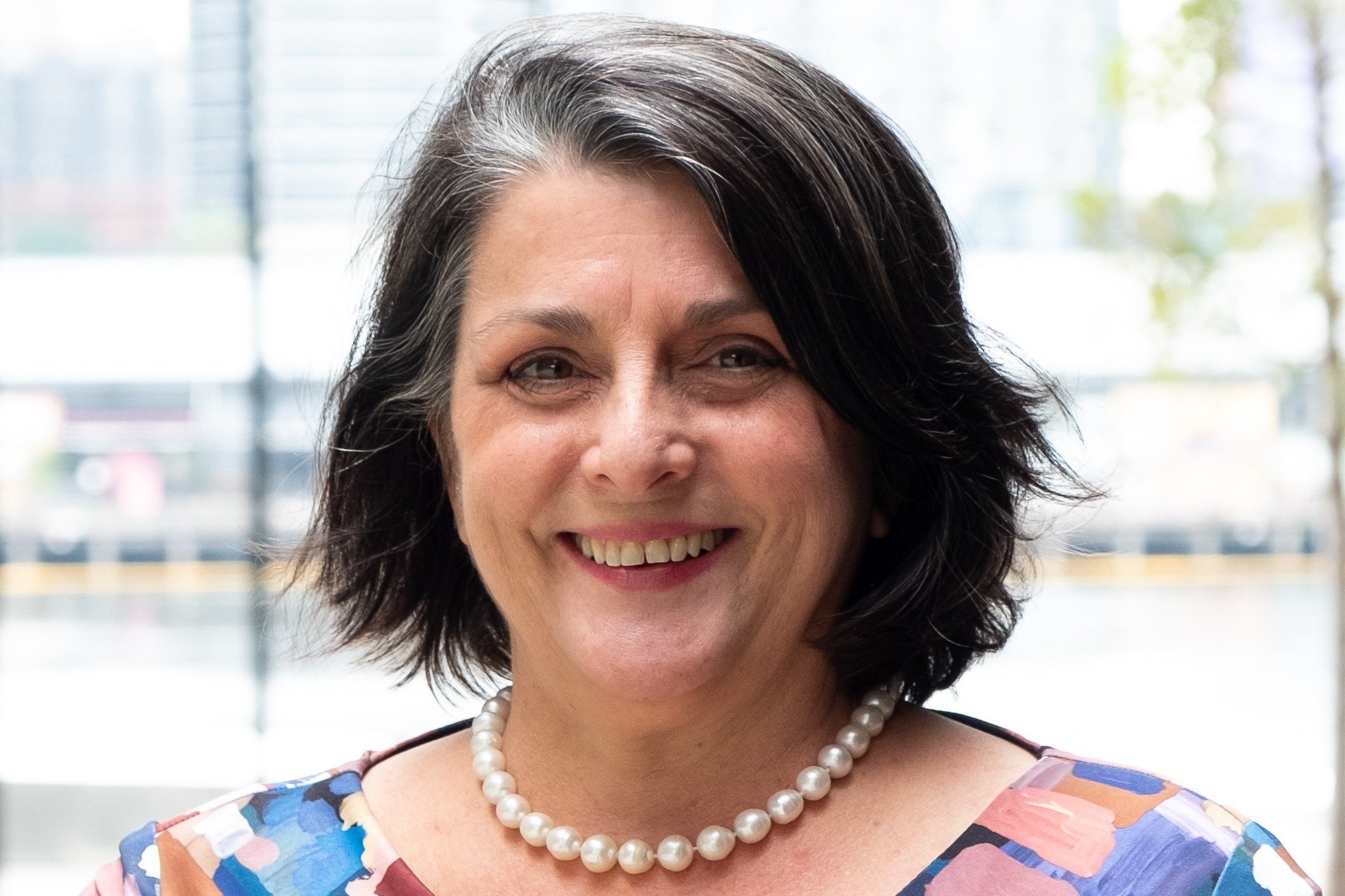DEEP TALKS WITH GLOBAL PUBLIC RELATIONS LEADERS
DANIELLE BOND
Chair of the International Executive Board of IABC and Chief Markeging & Comms Officer at Aurecon
“It’s in our hands as communication professionals to make the most of technology to innovate how we do our job”
Danielle Bond, Chair of the International Executive Board of IABC and Chief Markeging & Comms Officer at Aurecon
José Manuel Velasco (JMV): You have a very large background in the Public Relations (PR) business. But why did you become a PR professional?
Danielle Bond (DB): My original intent as a University student was to become a lawyer. However I enjoyed studying history, journalism and political science far more than law.
My working life began in community radio and then theatre. Working for not for profits makes you resourceful and confident at turning your hand to most anything. This early experience was invaluable for my move into business.
JMV: Could you share a short story or anecdote related to your vocation?
DB: I have worked for professional services companies for more than 25 years. Today, these firms employ large teams of marketing, PR and communication advisors, and the leader of these functions often sit on the executive team or report to the CEO.
In the early days of my career this was not the case. I was invariably the only marketer in the company, the youngest person in the room and also the only woman.
I had to win the professionals over to the strategic value I could bring to their business. I used to say to them that whilst I could organise “weddings, parties and everything”, the value I could bring to their business was far greater than a well run event. I had to earn their respect and build personal followership. I learned that if I was to be valued as an advisor, I needed to understand their business and its value drivers. That enabled me to point my capabilities at the right problems and deliver the best outcomes.
Today, I’m delighted to see there are 1000s and 1000s of PR and communication professionals who have carved out great careers working with, and for, the world’s largest professional services companies.
JMV: What does the PR profession give to you?
DB: The practice of my profession has taught me how to be more empathetic. It is now second nature for me to look at a problem or opportunity through multiple lenses. It has taught me the power of user-centred design to co-create solutions. These are life lessons as much as they are essential skills for business communicators.
JMV: Define the purpose of the PR profession.
DB: All organisations have stakeholders who are key to their success. The practice of Public Relations puts engaging these audiences and stakeholders at the heart of business strategy. PR is also purposeful. As a business communication professional it’s my job to represent the voice of an organisation, to use the power of communication to inspire action and change.
JMV: How have evolved the PR job in the last 20 years?
DB: There has been significant integration between the disciplines of marketing, PR, communication and brand. Each discipline brings value but together they can be even more impactful. What I’d like to see is greater strategic alignment between these disciplines, without losing the standalone value of each.
JMV: And during or as a consequence of the pandemic?
DB: Our profession has been front and centre in supporting organisations and communities to navigate the pandemic. The demand for strategic business communications has been acute and will only increase as organisations transition to living with COVID and its consequences.
JMV: Do you think the profession is really globalized?
DB: Setting international standards for best practice, ethical conduct and life long learning advances the profession and benefits us all. International communities and networks such as the Global Alliance and IABC are an important part of an ecosystem that recognises the power of collective effort to transform our world. An international mindset values local and regional differences and is distinct, in my view, from globalisation.
JMV: Regarding to the PR as a function, do we manage effiently our own communication?
DB: In my experience we’re often so busy helping our clients and employers manage PR that we don’t make the time to look after our own brand and reputation. We must work at this as it is potentially a fatal flaw that will forever cast us as tacticians rather than strategists.
JMV: How digitalization is impacting on the PR job?
DB: The marketer in me argues that digital is just another channel and that the fundamentals of marketing remain the same. And this is certainly true, but it is also true that digital is transforming the business landscape and creating new business models and digital futures. So we must pay heed to its impact on what and how we communicate.
The pandemic accelerated the speed of change and we are now in an environment where constant change is the new normal.
It’s in our hands as communication professionals to make the most of technology to innovate how we do our job. To leverage digital to facilitate connection, to build trust through transparency and drive efficiency through working smarter. I’m excited by the possibilities.
JMV: What do you think is our main challenge?
DB: I worry about disinformation and the declining crediblity of the media. It is having a polarising impact on our society that is damaging.
Professional communicators working for government and government agencies are at the front line of dealing with this “crisis of distrust” but it is also impacting business and not for profits.
As a professional, I look to my professional association and to academia to advocate for ethical communication. Collectively, we must celebrate the power of purposeful engagement and show how we all benefit when it is done well. We must apply our best minds to solve the trust challenge.
JMV: Is the PR function threatened by marketing?
DB: We shouldn’t feel threatened but rather see the potential for collaboration and co-creation to achieve better outcomes for our organisation.
JMV: Which do you think is our main task on the ethics side?
DB: It’s hard to walk past the crisis of distrust. As a profession we must hold ourselves to account for being honest and always communicating accurate information.
JMV: Do you think “truth” is threatened in the digital world?
DB: Digital isn’t the cause but left unmanaged it is a powerful tool for fostering disinformation.
JMV: Artificial intelligence and communication, any comment?
DB: Artificial Intelligence is just as susceptible to bias as the humans are who programme it. Business communicators must understand AI and seek to influence how it is developed and used so that it is inclusive of different stakeholders and audiences.
JMV: How do you imagine our job in the metaverse?
DB: We have the opportunity to design experiences in the metaverse that reflect and shape cultural values.
JMV: What do we have to do to elevate the profession? That means, for example, to be recognized as a C-Suite function.
DB: We need to shift from tactics to strategy. To set and be measured by the value we deliver in advancing organisational purpose and strategy.
JMV: What attitudes need a PR manager?
DB: Curiosity, creativity and integrity.
JMV: And skills?
DB: Critical thinking, active listening, excellent personal and written communication.
JMV: Draw the ideal organization for a PR department.
DB: Culture trumps organisation for delivering good outcomes, so over my career I have organised my teams in various ways. The secret to success has been having an aligned leadership team who value collaboration and spend time understanding the strategy and how they should work together to deliver on it.
At Aurecon I have structured our Corporate Communications function into three teams: External Communications & PR, Internal Communications & Engagement, and Digital Communications. They partner with Marketing, Brand and Regional teams to deliver integrated brand, marketing & communications programmes across Asia Pacific.
We also draw on expert external PR advice through a number of PR agencies and have a sizable inhouse creative team to design and deliver our content strategy.
JMV: Which managerial skills should improve or develop a PR manager?
DB: Strategic Planning, Programme & Project Management, People Leadership.
JMV: What would you say to a trainee on his/her first day of work?
DB: Don’t be afraid to ask questions. It’s how we all learn.
JMV: And the same to a senior manager over 50 years old?
DB: As a senior leader you have proven you are able to grow and develop people. Don’t forget to do the same for yourself. Your career isn’t set and forget at 50. Lifelong learning will help you design a meaningful career for years to come.
JMV: Please, share with us a quote related to Public Relations which impacted you the most.
DB: Stephen Covey’s “Seek first to understand, then to be understood”
JMV: Recommend a book to the Global Alliance community.
“The IABC Guide for Practical Business Communication: A Global Standard Primer”.


